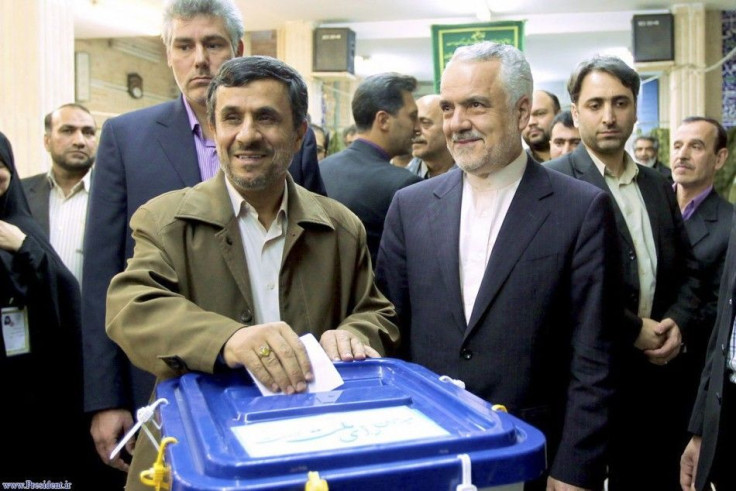Iran’s Parliamentary Election Condemned as Farce

The Iranian people are casting their votes in a parliamentary elections that is widely being looked at as a popularity contest between entrenched conservatives President Mahmoud Ahmadinejad and the Supreme Ayatollah Khamenei.
Ahmadinejad has been engaged in a conflict with the Mullahs since taking over as Iran’s president. Reportedly, some of Ahmadinjead’s supporters are quietly calling for a boycott since they feel that Khamenei controls the election anyway through his domination of the Guardian Council, which has to approve all candidates for the parliament. According to reports, more than one-third of potential candidates were disqualified by the Council from running.
About 48 million people are eligible to vote for 290 seats in the Tehran parliament, the Majlis.
While casting his own vote in Tehran, Khamenei told reporters: Because of the controversies over Iran and increased verbal threats [from western nations] the more people come to the polling stations the better for the country. The vote always carries a message for our friends and our enemies.''
This will be the first national poll since the chaotic events of 2009 which led to the disputed election of Ahmadinejad, followed by massive opposition protest demonstrations that were quite unprecedented in the short history of the Islamic Republic.
The current poll may also engender similar discontent since, among other things, opposition parties are entirely boycotting the election. Indeed, the two most prominent opposition figures, Mehdi Karroubi and Mir Hossein Mousavi, have been under house arrest for about one year.
Dorsa Jabbari, a correspondent for Al Jazeera in Tehran, commented: The absence of the opposition in the ballot is something that has not gone unnoticed. The movement has boycotted these elections because they have virtually been excluded from political life in this country since the 2009 presidential elections.”
Jabbari added: “The parliament has been traditionally very critical of Ahmadinejad. It is very important for this president to maintain some sense of power over the legislative body in his last year in office,
Consequently, the vote is basically down to Ahmadinejad and Khamenei and their proxies. The two have played a game of political intrigue, with their underlings as pawns.
Last spring, after Ahmadinjead fired his intelligence minister as punishment for dismissing another government official close to the president, Khamenei overruled the decision and reinstated the minister. Outraged, Ahmadninejad boycotted government functions for almost two weeks before retuning to his duties.
Another of Ahmadinjead’s opponents, ex-President Akbar Hashemi-Rafsanjani, openly expressed his concerns about fraud in the poll.
God willing, the outcome of the elections will be what the people want,'' he told reporters in Tehran.
Aside from the intrigues within the Majlis, Iran is wracked by high unemployment and the crushing effects of western sanctions on its key oil economy in retaliation for the country’s nascent nuclear program.
Some western human rights organizations have already condemned the Iranian election as a farce.
Amnesty International noted that in the run-up to the poll, the authorities had dramatically cracked down on any form of dissent through massive arrests.
Human Rights Watch (HRW) said Iran’s elections present no real choice for Iranian voters.
HRW commented that the poll “will be grossly unfair because of arbitrary disqualifications and other restrictions.”
“Iranian authorities have stacked the deck by disqualifying candidates and arbitrarily jailing key members of the reform movement,” said Joe Stork, deputy Middle East director at HRW. “There is no transparency surrounding the vetting and selection of candidates.”
© Copyright IBTimes 2025. All rights reserved.





















